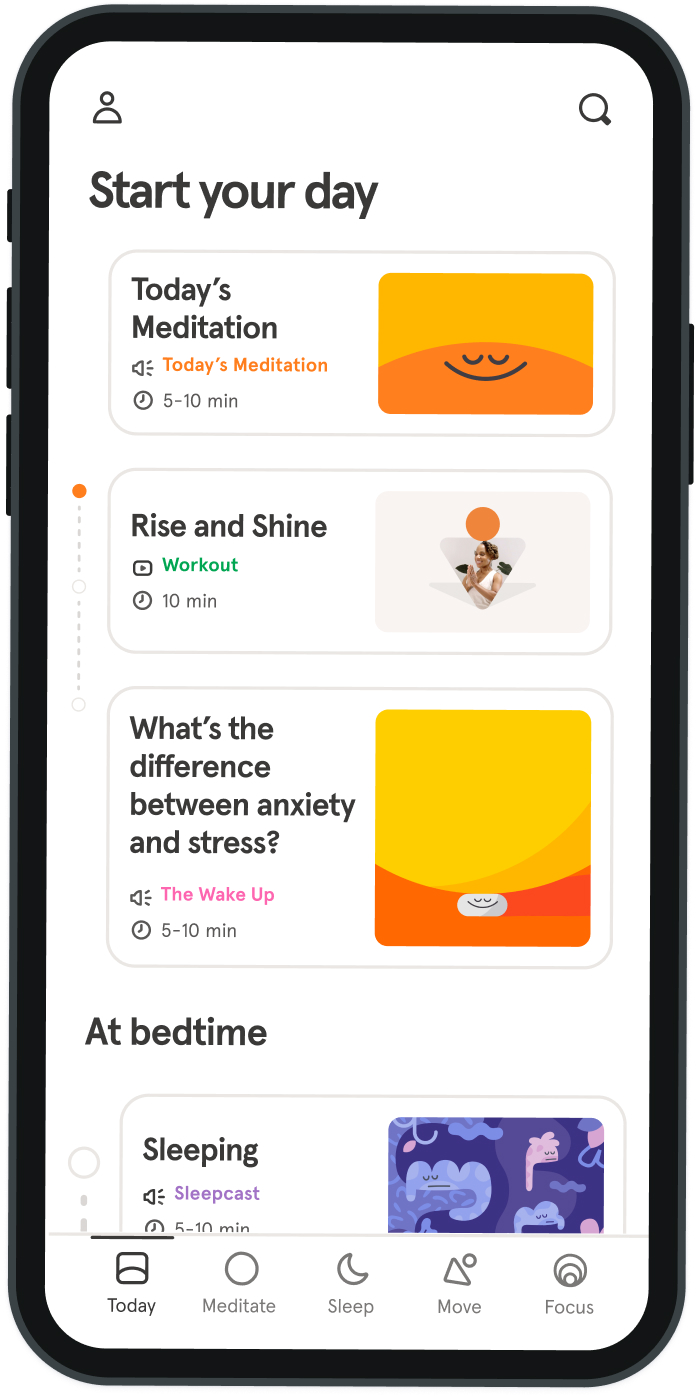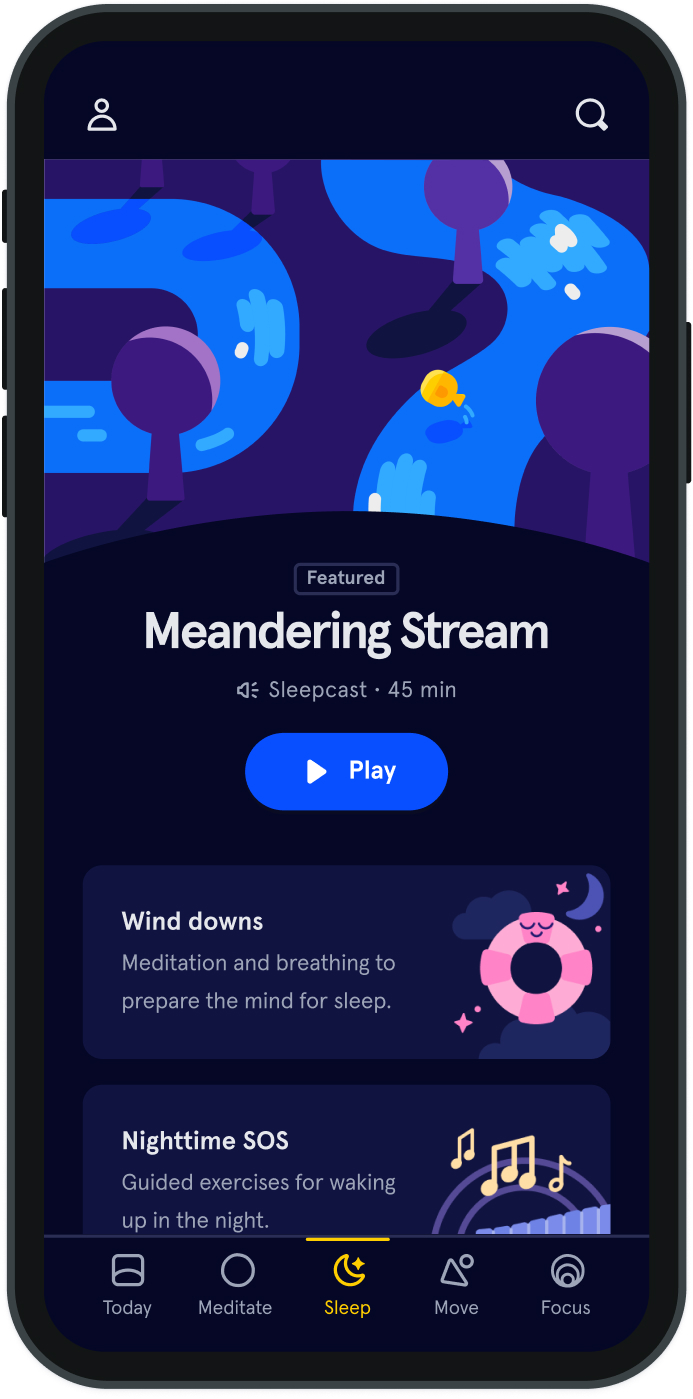If going to therapy sounds scary, this might be an alternative.
People battling anxiety, depression, and overall stress are often referred to psychotherapy, but a recent study shows there may be some complementary, successful options for treatment apart from traditional therapy.
A report in European Psychiatry found that mindfulness group therapy had similar effects as individual cognitive behavioral therapy (CBT) for anxiety and depression. Mindfulness vs. CBT Mindfulness therapy—in group or individual settings—highlights awareness of the present moment and techniques to frame experiences in a non-judgmental, compassionate way. CBT focuses on helping patients realize how perceptions can influence thoughts, feelings, and behaviors, and encourages new patterns of thought to feel and behave in a more positive manner. In other words, CBT is centered on behavioral change while mindfulness emphasizes acceptance, according to Dr. Virginia Frazier, the director of the Center for Behavioral Health at Spalding University in Louisville, Kentucky. Mindfulness group therapy may be as good a fit for you as individual therapy since it offers competitive rates and is often covered through insurance providers. Additionally, you may find a group setting to be preferable to one-on-one. Dr. Shoshanna Bennett, a California-based psychologist, observes advantages to each type of therapy depending on the patient’s needs. “It’s quite individual what might be most effective for any given person,” she noted. Some CBT therapists integrate mindfulness techniques into individual treatment, but a group approach works better for others. “Anecdotally speaking, I would propose that a combination of the two would be ideal,” Bennett said. “If finances are an issue and one needs to choose, the group will typically be more affordable.”
Personalized treatment, more perks from a group Curious whether your needs may get lost in a group setting? Frazier says group sessions are typically longer than individual appointments, giving everyone a chance to participate. For certain issues, group therapy may actually be preferable to individual therapy as it allows for patterns which occur in daily life to recur more naturally and the therapist present can help facilitate the process or resolution, Frazier explained. “The group approach is helpful in that it adds the extra component of group support and accountability,” said Diana Winston, who leads mindfulness education at UCLA's Mindful Awareness Research Center and authored “Fully Present: The Science, Art, and Practice of Mindfulness”. “We also get to hear what is happening personally to other group members which can be insightful and inspirational.” “Group therapy of any kind can have therapeutic value in and of itself since participants feel camaraderie and support from the other members,” Bennett added. Tiffany Cruikshank, founder of Yoga Medicine and author of Meditate Your Weight, believes some people may thrive in a group setting. “That can be the support they need to get started,” she said.
The mindfulness movement Another interesting component of the study is that people have options beyond CBT. Even though it’s a traditional style of treatment, it may not be ideal for everyone. Learning and practicing mindfulness—even on our own—can also provide similar success to traditional types of therapy. Cruickshank says that mindfulness encompasses two basic components: observation and non-judgment. It may seem simple to observe but avoid judging oneself, but it can be tricky, she notes. “This act of being an unbiased observer gives us the capacity to see things more clearly,” she says. Practicing mindfulness doesn’t mean that anxiety or depression will instantly disappear—undoing old habits and repatterning new ones can take a while, Bennett explains. “Just like we can’t expect to get in shape after going for a couple jogs, we can’t expect mindfulness to help us get relaxed after just a few times of practice,” said Dr. Jonathan Kaplan, a New York-based psychologist. “While calm and concentration develop over time, they might not be present in a particular moment, especially when just beginning the practice.” While you don’t need group therapy to begin practicing mindfulness, it’s heartening to see the effects being included alongside other traditional outlets for treatment.



Be kind to your mind
- Access the full library of 500+ meditations on everything from stress, to resilience, to compassion
- Put your mind to bed with sleep sounds, music, and wind-down exercises
- Make mindfulness a part of your daily routine with tension-releasing workouts, relaxing yoga, Focus music playlists, and more
Meditation and mindfulness for any mind, any mood, any goal

Stay in the loop
Be the first to get updates on our latest content, special offers, and new features.
By signing up, you’re agreeing to receive marketing emails from Headspace. You can unsubscribe at any time. For more details, check out our Privacy Policy.
- © 2025 Headspace Inc.
- Terms & conditions
- Privacy policy
- Consumer Health Data
- Your privacy choices
- CA Privacy Notice
